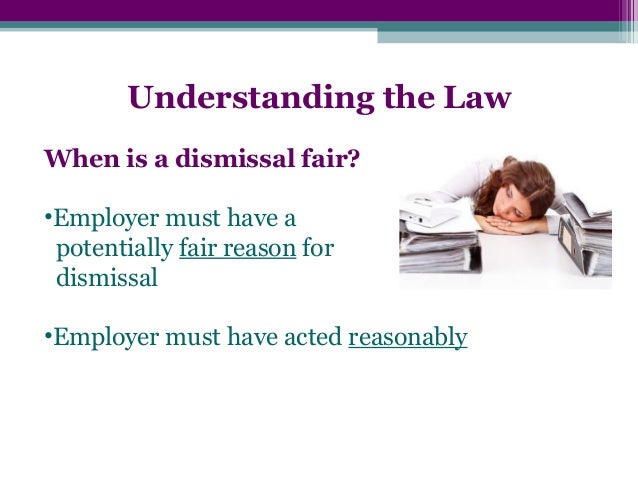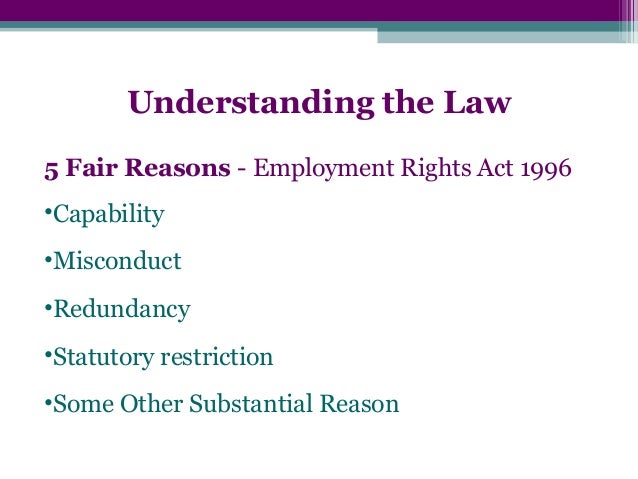Acas Capability Dismissal

It can be necessary for a business to performance manage its employees.However, it doesn’t necessarily mean they can simply jump in and dismiss someone without first giving them a reasonable opportunity to improve.
A Which? Legal member contacted us after she had been dismissed a week after her employer had raised concerns about her performance.Having been with the company for almost ten years and without any previous issues with her performance the decision came as a complete shock – most feedback up until then had been very positive.

In DLA Piper's latest case report, the Employment Appeal Tribunal (EAT) confirmed that the Acas code of practice on disciplinary and grievance procedures does not apply to dismissals on the ground of ill health where there is no element of culpability on the part of the. Capability dismissal refers to an employer terminating an employment contract on the basis of poor performance where they have a reasonable belief that the employee is unable to carry out the duties required of them to the expected standards. The outcome may be dismissal which the employee can appeal and potentially bring a tribunal claim in which case all records will be required. The capability process must be fair and transparent and, where the employer does not have a written policy and procedure, it is advisable to follow the Acas Code of Practice for Discipline and Grievance.
Seemingly going under the radar so far, in Bethnal Green and Shoreditch Education Trust v Dippenaar 2015 UKEAT 00 (21 October 2015) the Employment Appeal Tribunal has accepted that the ACAS Code of Practice on Disciplinary and Grievance Procedures applies not only to misconduct dismissals but is also relevant to capability dismissals. Performance management. The secret to managing a fair and transparent performance dismissal is timing and planning. A performance dismissal should only take place after some months of performance management, including training and formal written warnings.
Which? Legal Advice
Our specialist employment law solicitor advised the member that she was likely to have a claim for unfair dismissal and following a period of negotiation, she was offered an acceptable amount of compensation to settle her claims.Using the Which? Legal Settlement Agreement Service, we were able help her reach an amicable resolution, without the need to issue a claim.
Whilst the member had over two years of service, and therefore ordinary unfair dismissal rights, it can be lawful for an employer to dismiss someone on the grounds of their poor performance.However, the employment tribunal will expect an employer to follow a fair procedure, which would typically involve telling the employee what areas of their performance that need to improve, identifying ways to support the employee (e.g. additional training, coaching), setting a reasonable period for improvement (which could be several weeks/months), and issuing a series of formal warnings before taking any decision to dismiss.
Legal points
Acas Capability Dismissal


Prior to issuing a claim in the employment tribunal you need to contact the conciliation service ACAS to commence Early Conciliation (EC). ACAS is an independent body whose aim is to resolve employment disputes without the need to litigate the matter at the tribunal.There is no cost to you for engaging in EC and if it is successful it will bring and end to the matter and you will not have to issue proceedings.If EC is unsuccessful you will be given a certificate number, which you will need to put on the tribunal claim form you submit to the tribunal. The actual deadline to commence a claim in the Tribunal will depend on when you start EC and the date the certificate is issued.

Acas Capability Dismissal Vs
If you have been dismissed or are going through a performance management process at work you can call W?L on 01992 822828 to speak to our specialist employment solicitors to discuss your rights.